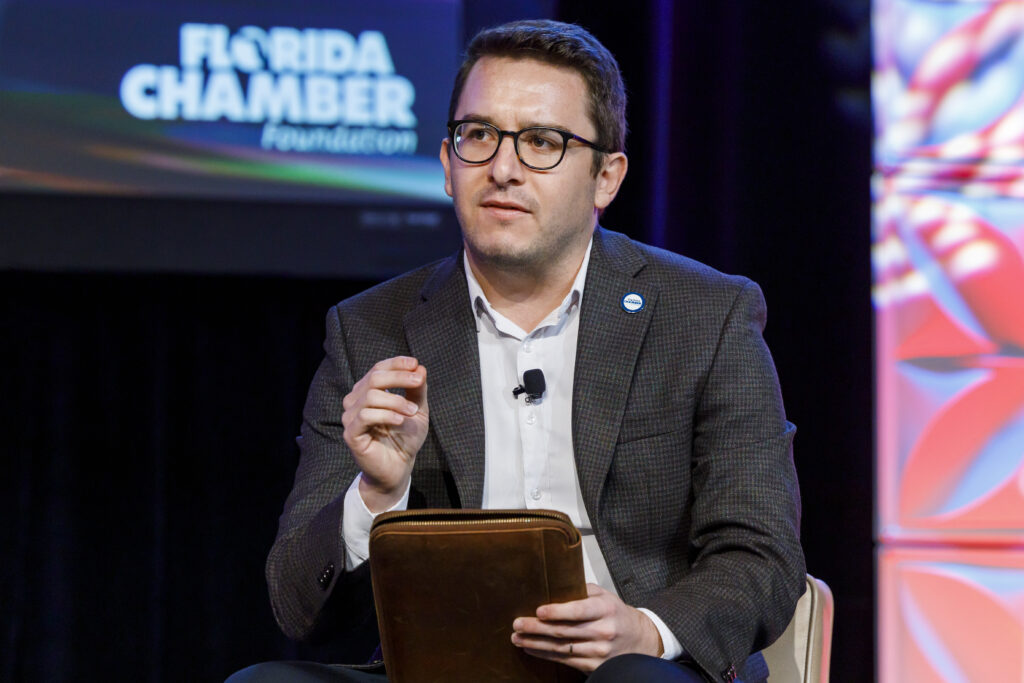
By: Kyle Baltuch, Executive Vice President, Florida Chamber Foundation
As the Florida Chamber Foundation works towards achieving the ambitious Florida 2030 Blueprint mission of growing Florida’s economy to the 10th largest in the world by 2030, the latest income migration numbers are showing that Florida continues to grow at a rapid pace. Once again, Florida is leading the nation, with over $36.05 billion in net income moving into our state each year. While this is $3 billion less than last year, that is being driven by an increase in outbound migration, not a decrease in inbound migration. Even with the slight decline, this figure is approximately 3.5 times the net income migration of Texas (which is #2), once again solidifying Florida’s position as the number one destination for income migration in the United States.
This continued influx of wealth is a direct result of the record population and business growth we have witnessed in recent years. Individuals, families, and businesses alike are drawn to Florida’s vibrant and diversified economy, favorable tax environment, and high quality of life. Florida’s natural beauty, world-class infrastructure, and commitment to fostering innovation make it an attractive place for new residents and entrepreneurs.
However, this sustained high income migration, while overwhelmingly positive, brings with it certain challenges that we must address to ensure sustainable development. Florida’s overall inflow of income increased by $4.5 billion, meaning it was an increase in outflow that led to the slight dip in net income migration this year. This increase in people – and their income – moving out of Florida raises the question of what has been changing in the state that is driving this faster pace of outmigration? One of the most pressing issues has been the rising costs of living, particularly in the housing market. While Florida is not unique in facing this issue, it has led to a number of challenges for families throughout Florida. In fact, the Florida Chamber Foundation has projected that Florida will likely experience population declines in the following age bands: 0-9, 25 -34, and 50-59. If this out-bound migration becomes a pattern, it could be a major economic challenge for Florida as these key populations are those who are starting their careers (25-34) or producing the most economic value (50-59). Without addressing this challenge, we could potentially hamper the diverse and dynamic workforce that is vital for Florida’s continued economic growth experienced in recent years.
Additionally, the surge in income migration in recent years has put pressure on essential services such as early learning and childcare, services that are vital for working families. These rising costs can create barriers for those striving to balance career and family life. In fact, the Florida Chamber Foundation’s recent study, Untapped Potential in FL found that the lack of access to high-quality, affordable childcare, was the number one reason parents with children under the age of six were leaving their jobs, which ultimately costs the state nearly $5.4 billion in economic and fiscal value each year. Ensuring access to affordable, high-quality childcare and education is paramount to supporting the next generation of Floridians and maintaining the competitive edge we have recently experienced in terms of economic growth.
As we celebrate Florida’s economic achievements, we must also commit to addressing these growing pains. By investing in affordable housing solutions, supporting early learning and childcare services, and fostering sustainable, thoughtful, economic diversification and growth, we can ensure that Florida remains a place where all residents, current and future, have the opportunity to thrive. Investments like Live Local and this past session’s tax package, which included a number of supports for childcare and early learning are great advancements, but we must continue to look for strategic ways for the business, philanthropic, and policy community to work together to address these challenges.
The Florida Chamber Foundation is advancing these goals as part of the Florida 2030 Blueprint mission, and will continue to analyze the latest data, bring to life informative research, and incubate potential policy solutions that promote balanced and sustainable growth. Together, we can achieve our vision of making Florida’s economy one of the top 10 in the world by 2030, benefiting all who call this great state home.
For questions about this analysis or to get involved with the Florida Chamber Foundation’s efforts to secure Florida’s future as a top 10 global economy by 2030, please contact me at kbaltuch@flchamber.com.